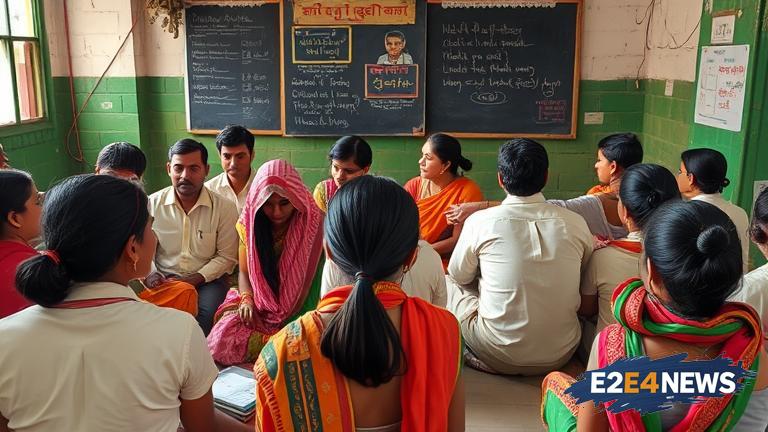India’s new education policy, which was announced recently, has sparked a nationwide debate over language and culture. The policy, which aims to promote regional languages and reduce the dominance of English, has been hailed by some as a step towards preserving the country’s linguistic diversity. However, others have criticized it for undermining the country’s diversity and promoting a narrow, nationalist agenda. The policy has been criticized for its emphasis on Hindi as the primary language of instruction, which has been seen as an attempt to impose a single language on the entire country. This has been met with resistance from non-Hindi speaking states, which fear that their languages and cultures will be marginalized. The policy has also been criticized for its lack of emphasis on minority languages, which are spoken by millions of people across the country. Despite these criticisms, the policy has been defended by the government, which argues that it is necessary to promote national unity and integration. The government has also argued that the policy will help to promote regional languages and reduce the dominance of English, which is seen as a colonial legacy. However, this argument has been met with skepticism by many, who point out that English is widely spoken and understood across the country, and that it is an important language for international communication and commerce. The debate over the new education policy has highlighted the complex and sensitive issue of language and culture in India, where there are over 20 official languages and hundreds of dialects. The country has a long history of linguistic and cultural diversity, and the policy has been seen as an attempt to impose a single, dominant culture on the entire country. The policy has also been criticized for its lack of emphasis on critical thinking and creativity, which are seen as essential skills for the 21st century. Instead, the policy has been criticized for its emphasis on rote learning and memorization, which are seen as outdated and ineffective methods of education. The debate over the new education policy has also highlighted the issue of access to education, particularly for marginalized communities. Many have argued that the policy does not do enough to address the issue of access to education, particularly for girls and women, who are often denied access to education due to social and cultural norms. The policy has also been criticized for its lack of emphasis on vocational training and skills development, which are seen as essential for the country’s economic development. Despite these criticisms, the policy has been hailed by some as a step towards promoting regional languages and reducing the dominance of English. The policy has been seen as an attempt to promote national unity and integration, and to reduce the country’s dependence on English. However, this argument has been met with skepticism by many, who point out that the policy does not do enough to address the complex and sensitive issue of language and culture in India. The debate over the new education policy is likely to continue, with many arguing that it is a step in the right direction, while others criticize it for undermining the country’s diversity and promoting a narrow, nationalist agenda. The policy has been seen as an attempt to impose a single, dominant culture on the entire country, which has been met with resistance from non-Hindi speaking states. The policy has also been criticized for its lack of emphasis on minority languages, which are spoken by millions of people across the country. The debate over the new education policy has highlighted the complex and sensitive issue of language and culture in India, where there are over 20 official languages and hundreds of dialects. The country has a long history of linguistic and cultural diversity, and the policy has been seen as an attempt to impose a single, dominant culture on the entire country. The policy has also been criticized for its lack of emphasis on critical thinking and creativity, which are seen as essential skills for the 21st century. The debate over the new education policy is likely to continue, with many arguing that it is a step in the right direction, while others criticize it for undermining the country’s diversity and promoting a narrow, nationalist agenda.





